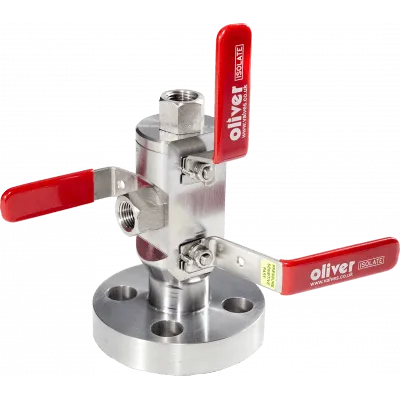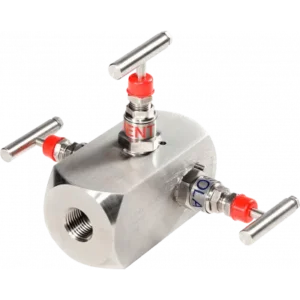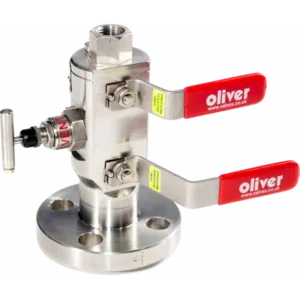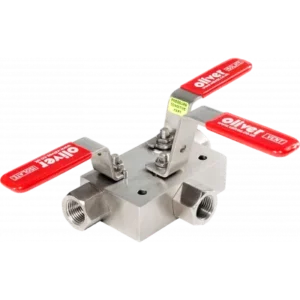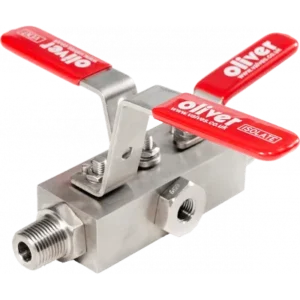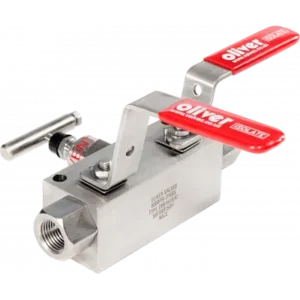Overview
Machined from a single piece upset forging, our ‘F’ Type Double Block and Bleed Valves feature two inline ball pattern primary and secondary isolating valves and a ball valve vent. Our Double Block and Bleed Valves are the superior market leader with a range of different operating temperatures and configurations.
Oliver Valves Double Block and Bleed valves provide Soft or Metal seating, with 10mm, 14mm, or 20mm bore isolation valves for many applications without having to resort to traditional single isolate ball valves. Our standard ‘F’ Type DBB range from 150lb up to 2500lb but can also be rated 10,000psi. They are available in Stainless Steel, Carbon Steel, Duplex, Super Duplex and many other materials on request. With various other connection types and sizes are available, for example, Flanged, Hub, Threaded, Welded.Standard Temperature range up to 240 Deg C ‘“ Soft Seated and 350 Deg C ‘“ Metal Seated.
All NPT connection threads are Single Point CNC machined.
All Oliver Valves’ products have material traceability and pressure test certificates to BS EN 10204 3.1. A unique code is stamped on all valve bodies linking them to their material and chemical analysis certificates.
A smaller unit vs the traditional hook-up, bringing both piping and instrumentation isolation into one unit. This means; the valve weighs less, which is significant on the top side of a platform when you combine all the pressure instrument take-offs. Typical installation is reduced from 33kg to 7kg, a weight reduction of 75%.
Weight reduction is also an issue when take-off is horizontal; this instils a bending moment and could cause critical fracture of pipeline interface and is generally overcome by adding more stanchions to support traditional installation, which adds even more weight.
Typically there is a 30% saving over the traditional installation of Forged DBB Valves, which jumps up to 70% in the case of valves made from exotic materials for more exacting processes!
The cost-saving onsite is lower, mainly when the cost of one factory tested component, instead of different piping valves, instrument valves, flanges, connections and flanged seal rings. There is also the cost of raising purchase orders and expediting the department to chase the parts in goods receivable, etc. Then the shipping costs are higher and weightier; specs must all be considered; rises in price can be 30% of the overall cost.

